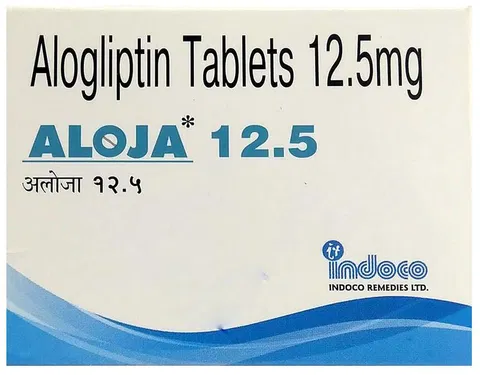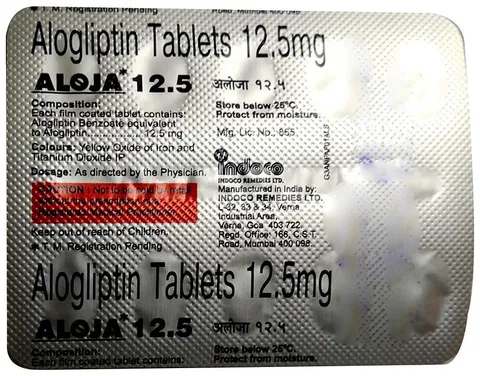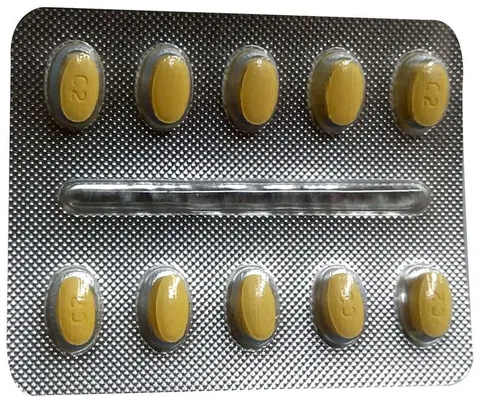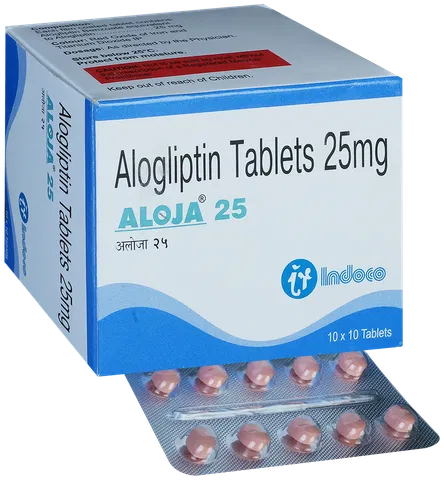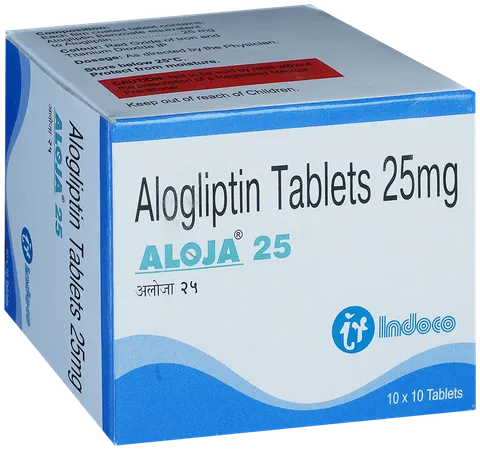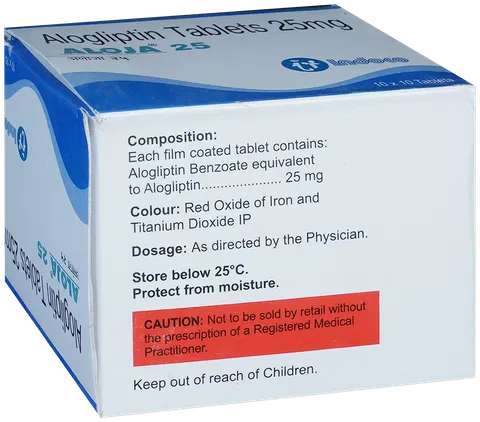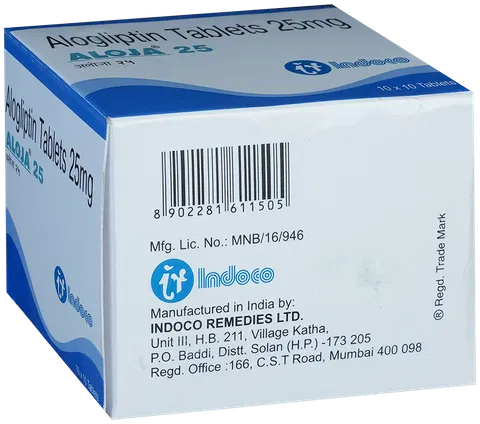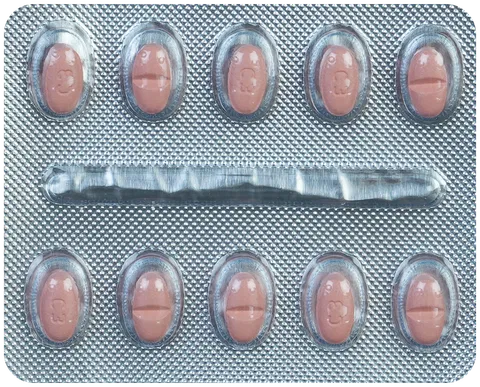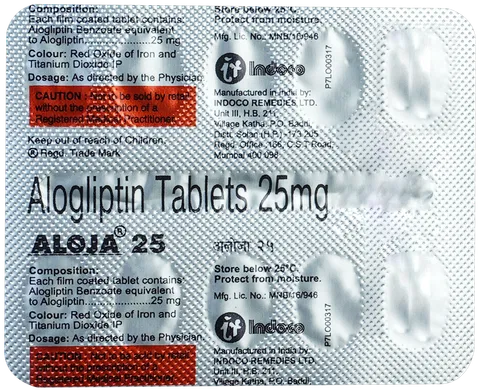Nesina (Alogliptin) Tablet
Generic
Aloglitptin (Generic Equivalent to Nesina)
Aloglitptin (Generic Equivalent to Nesina)
Nesina Tablet is a medicine used to treat type 2 diabetes mellitus. It is used together with a healthy diet and regular exercise to control blood sugar levels. This helps to prevent serious complications of diabetes like kidney damage and blindness.
Nesina Tablet is normally prescribed when diet and exercise alone or other medicines do not prove sufficient to control your blood sugar level. Your doctor may prescribe it alone or in combination with other diabetes medicines. It can be taken with or without food. The dose will depend on your condition, and blood sugar levels, but you should use it as advised by your doctor.
You should take it regularly at the same time each day to get the most benefit. Do not stop taking the medicine unless your doctor recommends it. It is important to continue eating a healthy diet and exercising regularly while taking this medicine. Your lifestyle plays a big part in controlling diabetes.
The most common side effects of this medicine include hypoglycemia, nasopharyngitis, upper respiratory tract infection, headache, abdominal pain, gastroesophageal reflux disease, diarrhea, itching, and rash. These are usually minor and improves with time. However, if any of these side effects bother you, you should let your doctor know.
Before taking this medicine, let your doctor know if you have ever had kidney disease, heart disease, or pancreas problems. Some other medicines you are taking may interfere with it, so make sure your doctor knows about all the other medicines you are using.
Pregnant or breastfeeding women should consult their doctor before taking it. Limit your alcohol intake while taking this medicine because it can increase your risk of developing low blood sugar levels. You may need regular tests such as kidney function and blood glucose levels to check that the medicine is working properly.
Uses Of Nesina Tablet
- Treatment of Type 2 diabetes mellitus
Benefits Of Nesina Tablet
In Treatment Of Type 2 Diabetes Mellitus
Nesina Tablet belongs to a group of medicines called DPP-4 inhibitors. It helps increase the amount of insulin your body produces after a meal and to stop your body from releasing too much glucose (sugar) into your blood. This way it lowers the blood glucose levels in your body. It is usually taken once a day.
Lowering blood glucose levels is an essential part of managing diabetes. Controlling the blood glucose level helps prevent serious complications of diabetes such as kidney damage, blindness, and loss of limbs. Proper control of diabetes can also reduce the risk of heart disease and stroke. Taking this medicine regularly along with a proper program of diet and exercise will help you live a normal, healthy life. You should keep using it for as long as it is prescribed for long-term benefits.
Side Effects Of Nesina Tablet
Most side effects do not require any medical attention and disappear as your body adjusts to the medicine. Consult your doctor if they persist or if you’re worried about them.
Common Side Effects Of Nesina
- Headache
- Hypoglycaemia (low blood sugar level) in combination with insulin or sulphonylurea
- Nasopharyngitis (inflammation of the throat and nasal passages)
- Upper respiratory tract infection
- Abdominal pain
- Gastro-esophageal reflux disease
- Diarrhea
- Itching
- Rash
How To Use Nesina Tablet
Take this medicine in the dose and duration as advised by your doctor. Swallow it as a whole. Do not chew, crush or break it. Nesina Tablet may be taken with or without food, but it is better to take it at a fixed time.
How Nesina Tablet Works
Nesina Tablet is an anti-diabetic medication. It works by increasing the release of insulin from the pancreas and decreasing the hormones that raise blood sugar levels. This reduces the fasting and postmeal sugar levels.
Disclaimer :The information provided on the website is intended to facilitate awareness about healthcare products and medical conditions generally but it is not a substitute for professional medical attention or advice. You should always speak with a qualified healthcare practitioner before taking any prescription or non-prescription drug. |
| Product Type--Salt | Generic–Aloglitptin (Generic Equivalent to Nesina) |
|---|---|
| tag--Manufacturer | Top Brand –Indoco Remedies |
| Power--Pack Size | 12.5mg–60 Tablets, 12.5mg–120 Tablets, 12.5mg–240 Tablets, 12.5mg–360 Tablets, 25mg–60 Tablets, 25mg–120 Tablets, 25mg–240 Tablets, 25mg–360 Tablets |

